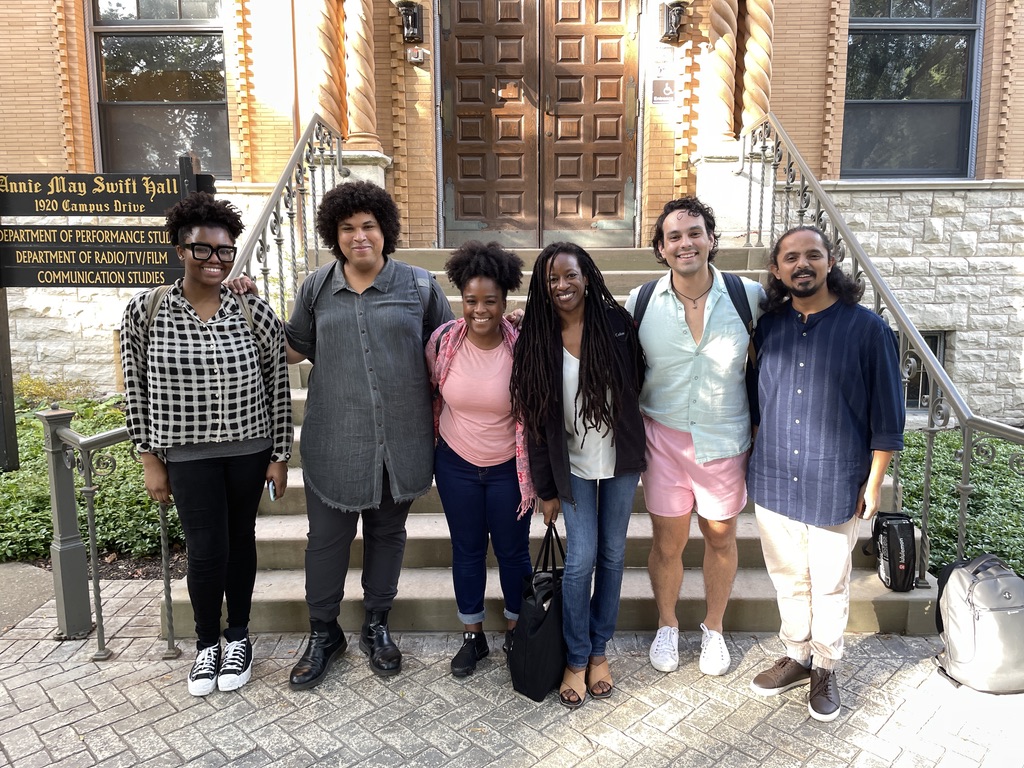
Nathan J. Lamp
Nathan J. Lamp is a theatre director, dramaturg, and writer from Toledo, OH. They received their B.S. in Performance Studies & Biological Anthropology from Northwestern University and their M.A. in Theatre & Performance Studies from Washington University in St. Louis. Nathan’s research interests include popular music as performance, sound studies, media studies, musical theatre, 20th-century and contemporary American theatre, dance, and performance, applied theatre practices, dramaturgy, Jewish studies, gender & sexuality studies, feminist performance theory, queer theory, trans studies, and disability studies. Nathan has worked with organizations such as St. Louis Actors’ Studio, Union Avenue Opera, First Run Theatre, Steppenwolf Theatre Company, the Museum of Contemporary Art, Chicago, Broadway in Chicago, Waltzing Mechanics, the DeBartolo Performing Arts Center at the University of Notre Dame, the Performing Arts Department at Washington University, and Imagine U/Northwestern’s Virginia Wadsworth Wirtz Center for the Performing Arts.
Toni Kunst
Toni Kunst is a Chicago-based interdisciplinary artist, scholar, and educator. As an artist, she has presented work at the MCA, Chicago Humanities, Steppenwolf Theatre, Theatre Wit, and several other locations. She holds a BFA in Musical Theatre, an MFA in Performance Art, and an MA in Performance Studies and is now pursuing her PhD in Performance Studies at Northwestern.

Johanna Middleton
Johanna is an educator, facilitator, artist, and scholar. She is currently the graduate assistant for Northwestern’s Office of Social Justice Education, where she works as a dialogue facilitator and teaching assistant. Johanna has also worked as a teaching artist, program manager, and consultant for organizations like Albany Park Theatre Project (Chicago), Greenway Arts Alliance (Los Angeles), and The Colored Girls Museum (Philadelphia). She received her BA in Theatre at Northwestern and her MA in Communication Studies at Louisiana State University. Her scholarly work has been published in Storytelling, Self, and Society, Liminalities, and the International Journal of Performance Arts and Digital Media.

Michael Landez
Michael Landez, MFA (he/him) is originally from San Antonio, Texas where he began his training in ballet and tap. He trained with Buddy and Susan Trevino for numerous summers at the Joffrey Workshop TX before joining American Repertory Ballet under the direction of Douglas Martin. He enjoys performing, making, and teaching about dance through active participation with those that want the experience. He holds a Bachelor of Science in Biology from TexasA&M- San Antonio and certification through the American Ballet Theatre National Teacher Training Curriculum (Pre-Primary – Partnering), Progressing Ballet Technique, and a 200-HR Yoga Teacher Training. He recently completed a Masters of Fine Arts in Dance at the University of Iowa with a performance emphasis, under the advisement of Rebekah J. Kowal. His research interests lie at the intersection of dance practice, performance studies, dance studies, Latinx studies, and queer studies, where he seeks to embody a more just and equitable sense of Western concert dance history in the present. He is a co-founder and current member of the Dance Farm Collective and Ballet Master for the Alamo City Arts.

Maulikraj Shrimali
Maulikraj Shrimali (he/him) is a playwright, director, researcher and Dalit artist-activist from India. He is a third year PhD student in the Department of Performance Studies. He is a Protest song singer, Dafali (tambourine) player and Garba dancer. He has founded the Whistle Blower Theater Group, an Anti-caste theater company where he has written, directed, and performed anti caste, anti brahmanical patriarchy plays, that uses a variety of theatrical techniques to explore contemporary social and political issues in India. He is also co-founder-president of “Ambedkar-DuBois Society”. He graduated in Psychology, a Master’s in Development Communication from Gujarat University and a MPhil in Diaspora studies from the Central University of Gujarat.
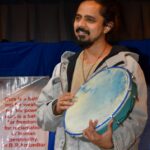
Ali Murat Gali
Ali is a writer, scholar, and gatherer, born and raised in Antakya, where Asi River flows across Nur mountains before meeting the Mediterranean Sea. Their visions have grown with the creative and willful practices of queer and trans communities, including their chosen kin. Ali holds a BA from Stanford University, and JD from Yale Law School. Prior to coming to Northwestern, they have grown a home in Detroit, where they learn from and create among the city’s abolitionist dreamers. They are inspired by the spiritually nourished, land and care-based practices of visionary communities in Detroit and Antakya. Ali is a lover of poetry, as it is animated through words and the body. They are nourished in forests, listening to motions of waters, and hosting cozy or rowdy times with their homies.

Shola Jimoh
Shola Jimoh is an interdisciplinary Nigerian-American scholar from the western suburbs of Illinois. Both interpersonally and intellectually, she is fascinated by the cultural frictions and tensions of the Afro-diasporic experience; or, the convoluted polyrhythms of being, belonging, and (be)coming to global blackness. Shola holds a Bachelor of Arts in Public Health with the highest distinction from the University of Illinois-Chicago, along with a Master of Arts in Performance Studies from Northwestern University.

Camila Simonin
Camila Simonin is an artist-researcher and a PhD student at the department of Performance Studies at Northwestern University. She holds an MA in Performance Studies from NYU and an MA in Dance Studies from UFRJ (Federal University of Rio de Janeiro). She has participated in conferences in and outside of the United States and has published papers in international journals, such as IDyM (Investigaciones en Danza y Movimiento) in Buenos Aires. She was trained as a theater director and a movement analyst. In her artistic pieces, she mainly works as a theater director and performance artist. Camila has been awarded in theater festivals in Brazil, having shown most of her work in Rio de Janeiro, Chicago and New York.
For more information, please visit: https://www.camilasimonin.com/

Makeda Thomas
MAKEDA THOMAS is a dance artist, artistic director, curator, and scholar from Trinidad & Tobago where she founded The Dance & Performance Institute in 2010. She performed globally as a company member of Urban Bush Women, Ronald K. Brown’s EVIDENCE, and RHPM. Her work in dance theatre, film, Carnival, site-specific performance, and installation has been presented internationally, with awards from Creative Capital, 651 ARTS, the National Endowment for the Arts, and many others.
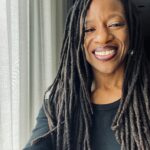
Devika Ranjan
Devika Ranjan (she/her) is a writer, ethnographer, theater-maker, and educator who tells stories about migration and technology. She creates communities of care through devised immersive performance and has facilitated workshops with migrants worldwide. As Associate Director of Albany Park Theater Project, Devika worked with immigrant youth to create ethnographic theater about issues like family separation, labor rights, and deportation. Previously, she was a Fellow at the Lab for Global Performance and Politics. As a Marshall Scholar, Devika holds a distinction from the University of Cambridge for her MPhil research on the electronic tagging of asylum-seekers and an MA in Applied Theatre from RCSSD. Devika is currently studying borders, surveillance, and ecologies of liberation.

Marsae Lynette
Marsae Lynette is an interdisciplinary artist, activist, and scholar pursuing a PhD in Performance Studies at Northwestern University, with a focus in environmental humanities and policy. Her research and creative practice center Afro-diasporic and Indigenous ecological performance through ritual, cultural memory, environmental justice, and the choreopoem form. She holds an MFA in Dance from the University of Michigan. Marsae’s choreography and movement cinema have been featured in academic conferences, festivals, and productions such as “Hastings Street” at the Detroit Music Hall and “Magnolia Ballet” at Williamston Theatre. She has taught for institutions including Interlochen Center for the Arts. Currently the graduate assistant for the Black Arts Consortium in Chicago, she is also a member of the NU Abolitionist Lab and founding member of the Aarcc Coalition. Recipient of the Kresge Gilda Snowden Award and New Waves TT Artist Residency, Marsae’s work cultivates ecological empathy and collective action for a sustainable and just future.

Nora Alami
Nora Alami is an experimental dance artist and PhD student in Performance Studies with a Mellon Fellowship in Middle East and North African Studies at Northwestern University. For the last decade, Nora has worked in New York as a dance-maker and creative producer supporting festivals, collectives, non-profits, and independent artists. Her artistic works research the trappings of nostalgia and desire for a sense of belonging never quite experienced. She joins disparate realities through sensuality, absurdity, and materiality.
She is a 2025 danceWEB Scholar, 2024 MANCC Forward Dialogues Artist, and 2023-2024 CUNY Dance Initiative Artist. She earned a B.A. in Psychology at Colorado College, with a minor in Philosophy and holds a Masters degree in Performance Studies from Northwestern University. She is the 2025 recipient of the Robert S. and Gertrude B. Breen Memorial Award in Performance Studies.
Nora’s graduate research at Northwestern theorizes the erotic and alterity at sites of experimental dance-making and performance. Creating her own artistic work and collaborating as a creative producer moved her to investigate how artists negotiate their own desires with the desires of the audience, curator, and funder.

Candidates
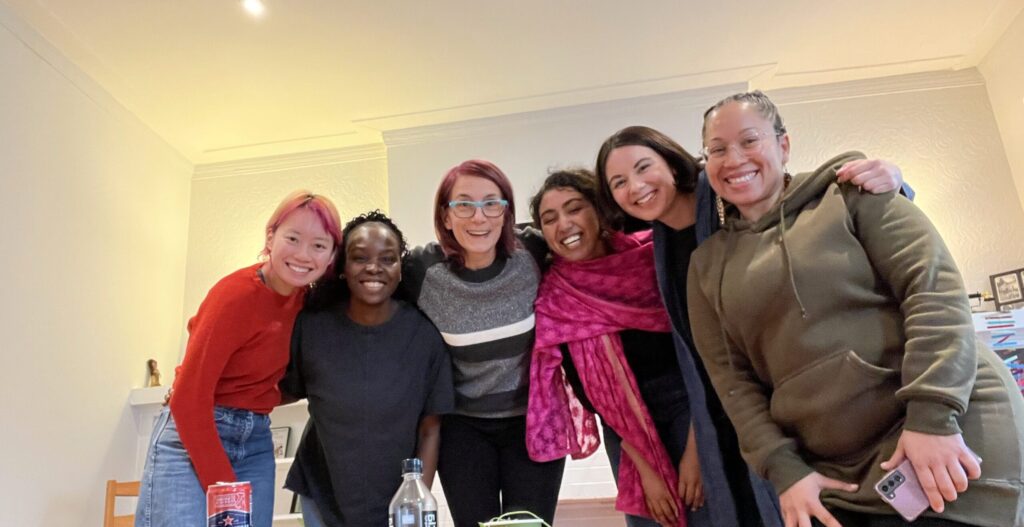
Rashayla Marie Brown
Rashayla Marie Brown (RMB) is an “undisciplinary” artist™ who moves between different time-based media to challenge the hierarchies they uphold. These artworks have been presented at venues internationally including Embassy of Foreign Artists, Geneva; Metrograph, NYC; Museum of Contemporary Art, Chicago; Museum of Contemporary Photography, Chicago; Museum of the African Diaspora, San Francisco; Recess, Brooklyn; Rhodes College, Memphis; Royal Academy of Arts, London; Slamdance Film Festival, Park City; and Tate Modern, London. RMB studied Arabic and French through a US Dept. of Ed. fellowship in Rabat, Morocco, served as Starr Fellow in the Royal Academy Schools in London, and holds degrees from Yale and SAIC, trained by Paul Gilroy and Barbara DeGenevieve respectively.
Dissertation Project:
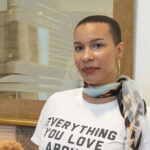
Gabriel Guzmán
Gabriel Andres Guzmán is a Mexican scholar-artist hailing from San Diego and Tijuana. They received their master’s degree in Performance Studies at Northwestern University in 2020 and have an undergraduate degree in English/Media & Cultural Studies/Gender & Sexuality Studies from UC Riverside in 2019. Guzmán is currently a PhD candidate in Performance Studies at Northwestern University and is a part of the Latinx and Caribbean Studies cluster (LACS).
During their time at Northwestern University, Guzmán has been affiliated and generously supported by Multicultural Student Affairs, the Latinx Studies program, the Latinx Graduate Student Association, the Point Foundation, HACE, the LACS program, the Council for Race & Ethnic Studies, and the Sexualities Project at Northwestern.
Dissertation Project:

Madeleine Le Cesne
Madeleine Le Cesne is a New Orleanian poet scholar working across the fields of performance studies, critical race theory, environmental studies, urban studies, and affect theory. Her research focuses on porosity and points of seepage as critical relationalities that blur the boundaries between body, object, and land in New Orleans’ past-present-future black creole communities. She is invested in the worldmaking potential of critical theory and hopes to return to New Orleans after her studies to develop this work into practice. She holds an A.B. in Anthropology with certificates in Dance Studies and Creative Writing from Princeton University (2019).
Dissertation Project:

Malú Machuca Rose
Malú Machuca Rose is a transfeminist scholar/organizer/cultural worker from Perú. Currently, Malú is a PhD student in the Department of Performance Studies and a Mellon Fellow in Gender and Sexuality Studies at Northwestern. Their research focuses on queer of color critique, particularly around questions of trans and queer death and survival, desire, nightlife, sex and risk, decoloniality, feminism, critical theory, performance, visual culture and healing justice. Their most recent work appears in the Trans en las Américas issue of TSQ and interrogates the necropolitical response to HIV/AIDS through the racialized and classed lens of a travesti politics of refusal, in the essay “Giuseppe Campuzano’s Afterlife: Towards a Travesti Methodology for Critique, Care and Radical Resistance” (2019). Malú received their MA in Gender and Women’s Studies from the University of Wisconsin – Madison and their BA in Sociology from PUCP. Malú is co-author of “Estado de Violencia” and “Nuestra Voz Persiste”, books published on the situation of LGBTIQ people in Peru as part of their work in No Tengo Miedo.
Dissertation Project:

Michell Nicole Miller
Michell Nicole Miller is an undisciplined poet and educator. Her current project explores the intersections of black feminist spiritualities, reproductive justice, and ritual performance. Her research interests include: transnational black feminisms, postcolonial/decolonial praxis, black poetics, and sound studies. She holds an A.M. in Theater and Performance Studies from Washington University in St. Louis and a B.A. in English Literature and Languages.
Dissertation Project:

Cordelia Rizzo
Cordelia Rizzo Is an activist-scholar from Monterrey, Mexico. With a background in Human Rights and Philosophy, her current research project is looking at embroidery as a form of performing resistance against the dehumanizing apparatus of the current War on Drugs in Mexico. The production of textiles is a way of preserving an archive of women’s voices implicitly resisting the idea that war and violence are inevitable. She is also interested in the political aspect of the performance of touch and other everyday.
Dissertation Project:

Natalia Molebatsi
Natalia Molebatsi is a PhD student in Performance Studies. She is a Pan-African feminist and queer poet, writer and cultural worker from South Africa. Natalia is the editor of We are: A Poetry Anthology (Penguin, 2008) and Wild Imperfections: An Anthology of Womanist Poems (forthcoming from Penguin Random House and Cassava Republic Press, 2021). She is the author of Sardo Dance (Ge’ko, 2009) and Elephant Woman Song (Forum, 2017). Her writing is included in, among other journals, Scrutiny2, Rhodes Journalism Review, Agenda, Muziki and the National Political Science Review. Her MA thesis (through the University of South Africa) entitled An Analysis of Representations of Women in SAfm’s Poetry in the Air, focused on a critical discourse analysis of womanist cultural production on public radio. Her BA (Hons) work focused on the representation of Black women’s hair in television advertisements. Her research interests include feminist media inquiry; Black queer and feminist performance and poetry in theatre as radical (intersectional) feminist intervention. Natalia has performed poetry and presented creative writing workshops in over 15 countries.
Dissertation Project:
Time travel poetics: Black feminist poetry-performance and geographies of liberation

Olabanke Oyinkansola Goriola
Olabanke Oyinkansola Goriola is a Nigerian multidisciplinary artist-scholar, an Edward A. Bouchet scholar, an Africanist graduate student at Northwestern’s Program of African Studies (PAS), and a Ph.D. Candidate in the Department of Performance Studies. She is the author of An African Feminist Reading of Wole Soyinka (2024), published in The Republic Journal, and the co-author of Burna Boy, #EndSARS, and the Use of Restlessness (2024), published in The Black Scholar (TBS) Journal of Black Studies and Research.
Olabanke’s writing and research explore the intricate intersections of Colorism, Dance, Performance, Media Representation, Black women’s labor, identity politics, and skin-bleaching practices. She explores the sacrifices dark-skinned Nigerian female performers make to attain cultural belonging and interrogates the media’s role in perpetuating Euro-American beauty standards. Her work critically analyzes how societal pressures shape self-representation and embodiment and how identities and bodies become sites of negotiation and resistance. Her interdisciplinary approach blends academic inquiry with creative expression, utilizing storytelling, performance, and visual media to interrogate themes of race, identity, and aesthetics.
Olabanke has an M.A. in Performance Studies from Northwestern University, an MScR in Religious Studies from the University of Edinburgh (Scotland), a European Union Joint M.A. in Dance Knowledge, Practice and Heritage (Choreomundus) from the Norwegian University of Science and Technology (NTNU, Norway); University Clermont Auvergne (UCA, France); University of Szeged (Hungary), the University of Roehampton (U.R., United Kingdom), and a B.A in Theatre Arts from the University of Ibadan, Nigeria. Olabanke has presented her academic work at international conferences, including Performance Studies International (PSi) in London, the Canadian Association of African Studies (CAAS) in Montreal, and the International Council for Traditional Music and Dance (ICTMD) in Ghana. She is the 2025 recipient of the Department of Performance Studies’ Lilla A. Heston Award for Academic Excellence.
Learn more about Olabanke’s work here: https://olabankegoriola.com/
Dissertation Project

Archita Arun
Archita Arun (she/her) is an interdisciplinary researcher, writer, and singer from Mumbai, India. Sound is her first language— she is a trained Indian classical singer, having trained in both Carnatic and Hindustani classical music styles. In her research, Archita studies the performance of desire and pleasure as forms of refusal to normative representations of the South Asian diaspora across music, performance art, visual culture, and film.
Her dissertation project listens for embodiments of pleasure and desire across the works of four femme diasporic artists, namely Indian American performance artist Samita Sinha, Swiss Tamil hip hop and R&B singer Priya Ragu, British Tamil Qawwali singer Abi Sampa, and Singaporean Tamil time-based media artist Priyageetha Dia. By centering the fleshiness of sound, Archita’s work explores the ways in which diasporic subjects perform refusal. Her areas of research include sound studies, diaspora studies, minoritarian performance theory, Black feminist theory, and queer of color critique. She holds a Bachelors in Theater and Creative Writing from New York University Abu Dhabi and a Masters in Performance Studies from Northwestern University.
Dissertation Project
Resonant Bodies: Sensing South Asian Diasporic Refusal

Clara Lee
Clara Wenrong Lee is a researcher, writer, and cultural worker from Singapore. An alumnus of the School of Criticism and Theory, at Cornell University, they hold a B.A. in History of Art and Material Studies from University College London, and a M.A. in Aesthetics and Politics from California Institute of the Arts. Currently, a doctoral candidate in the Department of Performance Studies, at Northwestern University, they were the 2024 recipient of The Lilla A. Heston Award for Academic Excellence.
Dissertation Project
Thickening the Plot: Unruly Racial Formations

Jennifer Ligaya
Jennifer Ligaya is an AfroPinay sound & performance composer and artist scholar born and raised in Chicago with an interdisciplinary background in visual art, vocal performance, dance, and theater. Mother to a Scorpio son, graduate of the MA in Interdisciplinary Art program at Columbia College in Chicago, and PhD student of Performance Studies at Northwestern University, her original work includes solo and collaborative performance compositions and sound installations. A sponsored artist, grant recipient, and commissioned multimedia artist, her compositions amplify critical conversations around identity, liberatory practices, ancestral indigenous knowledge systems, and moments of communal healing, through the weaving of traditional and contemporary sound, performance, and personal ancestral folk arts practices. The newest core member of Honey Pot Performance, Ligaya’s research interests sit at the intersections of Sound Studies, Critical Mixed Race and Diaspora Theory, Southern Studies, and Cultural Studies. Her current creative practice explores Afro-Asian feminist subjectivities and speculative arts, indigenous healing and survival practices, and the genealogies of anticolonial spiritual-political resistance.
Website: www.jenniferligaya.com
Dissertation Project:

Daisy Donaji Matias
Daisy Donaji Matias is a Oaxacan-American writer and interdisciplinary scholar from Richmond, Virginia. Daisy’s dissertation project, Minor Meditations: Techniques for Other Ways of Being, interweaves literature from minoritarian performance theory, psychological anthropology, and Indigenous studies to examine Latin American artists and healers who deploy Indigenous knowledges and techniques of attention to transform subjectivity and corporeality. The techniques of attention she considers range from psychedelic ritual to filmic absorption to sound healing, all of which function as improvisational strategies for undoing violence inflicted upon the Indigenous and Indigenous descended transnational body. Her case studies include the Mazatec Sabía, María Sabina; the Mixtec film Collective, Colectivo Los Ingrávidos; and transdisciplinary artist and healer, Guadalupe Maravilla. Daisy holds dual Bachelor’s degrees in Art History and Gender, Sexuality, and Women’s Studies from Virginia Commonwealth University and a Master’s degree in Performance Studies from Northwestern University. Daisy is a 2024–2025 Graduate Fellow at the Northwestern Center for Native American and Indigenous Research. Daisy lives on the far north side of Chicago with her bunny and her partner.
Dissertation Project
Minor Meditations: Techniques for Other Ways of Being

José (Pepe) Álvarez-Colón
Pepe Álvarez is a Puerto Rican interdisciplinary artist and scholar working across the disciplines of dance, theatre, and performance art. His doctoral research project examines Puerto Rico’s experimental dance history particularly looking at the practices, aesthetics and socio-political frameworks of dance improvisation in the context of Puerto Rico’s four-decades long economic crisis. Both his artistic practice and academic work follow a practice-based research methodology to establish links between art practice, critical theory and cultural history. He is currently working as one of the co-principal investigators in Northwestern University’s Puerto Rican Arts Development Initiative PRAI (2018-2020) sponsored by the Andrew W. Mellon Foundation.
Dissertation Project:

To reach out to an current students, please email ps@nothwestern.edu and our Business Administrator can connect you to them!